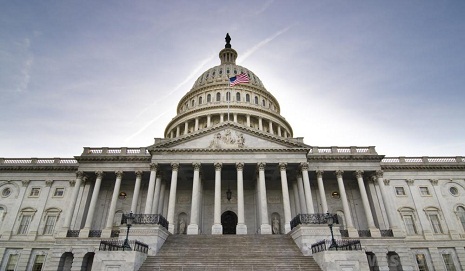While nearly every country from Libya to Afghanistan is involved in a military or terror conflict, we need to stop looking at events country by country and instead recognize what is really happening: a global war against Western values. While the parties are at odds (Sunni extremists vs. Shiite radicals, for example), they are allied in their radial views of the world and their profound hatred of us and some of our historic allies.
Too many mistakes have been made.
President Barack Obama’s decision to rush troops out of Iraq and his inattentiveness to the mismanagement of Nouri al-Maliki’s government led to a vacuum of power in Iraq. This ultimately contributed to the rise of unrest and later the Islamic State (IS or IL), the most dangerous Islamic terrorist network to date.
The administration’s feckless reaction to the Arab Spring weakened our relationship with Egypt.
The government’s unwillingness at first to admit the problem of Syrian President Bashar al-Assad and then, at recognition, its unwillingness to do anything about it, weakened our standing in the region. We allowed our own red line to be crossed.
Earlier this year, the Administration was once again caught flat-footed in Yemen when the Iranian- backed Houthi rebel group overthrew Yemen’s government.
We watched the spread of Al-Qaeda to the Arabian Peninsula and North Africa. We allowed Iran to move aggressively into Iraq, Syria, Yemen and Lebanon.
And most recently, we involved ourselves in talks with the very people who describe us as Satan, actually wanting to come to an agreement with the Iranians that are spreading terror all over the world. Everyone from Tehran to Timbuktu knows Obama is more eager to cut a deal (any deal) on Iranian nuclear proliferation than the Iranians. U.S. negotiators felt undue pressure to compromise on a bad deal that could impact the region and the world.
Meanwhile, the White House has soured relations with the foundations of our most important relationships, including those with the democratic state of Israel and the terror-fighting Azerbaijan, both clearly disliked by Iran’s mullahs precisely for being America’s allies.
It would be no exaggeration to say that our relations with Israel are the worse they have ever been, tainted by petty personality conflicts between Obama and Prime Minister Benjamin Netanyahu. There is increasing frustration by Azeri leaders at the incessant an unwarranted singling out of Azerbaijan by U.S. administration leaders as an autocratic, heavy-handed nation. Azerbaijan is the only Muslim-majority country that has been consistent and persistent in its openness to civil values, women and the West. Azerbaijan, one of the U.S.’s few real and reliable friends in the Muslim world…and one who can be depended upon for wise counsel when dealing with fellow Muslims and even the ever-assertive Moscow. Instead, the Administration glosses over these persuasive facts that Azerbaijan is staunchly secular, Western and progressive…a winning make up for a U.S. confidant.
“The world is on fire” and the U.S. is not doing enough to stamp it out, was a message delivered by Congressman John Boehner, speaking from Israel on April 2. Those who believe that Boehner’s words are hyperbolic are naive.
Obama’s indecision, reversed decisions and blatantly ignoring recommendations of his team are rendering America impotent. The result of this unbridled chaos will be an America with diminished influence over the nature of the governments that emerge (or survive) and over that strategically important corner of the world.
The U.S. doesn’t have a coherent foreign policy. Events such as 9/11, recent attacks in Europe, Africa, Canada and the U.S. should tell us that distant problems can very quickly spread to our own homes. History teaches us that a power that doesn’t stand by its allies or takes them for granted does not last long. Just as others are learning the lesson, U.S. seems to be increasingly oblivious to this basic truth.
Congress must act constantly and consistently to help the administration out of its quagmires.
More about:
















































